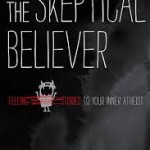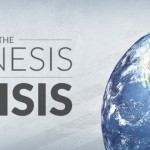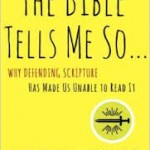 In my earlier post today, I summarized the comments I received from my initial question, “What are the one or two biggest challenges you face to staying Christian?”
In my earlier post today, I summarized the comments I received from my initial question, “What are the one or two biggest challenges you face to staying Christian?”
Now we move to part 2, which is ways in which you have found to move forward. Most of you found it very encouraging to be able to lay out the challenges you face, and I know many readers were encouraged by watching that process. I am hoping that part 2 will continue along those lines.
I’m a little nervous about moving on, though, because “moving on” commonly implies minimizing the challenges–“Oh that’s not really a problem. Here’s the answer, now move on.” I would like us to avoid that common pattern.
I’ve thought quite a bit about “why move forward?” so I’m not just winging it here. However, I do not want you to read my own thoughts below as any sort of mandate for the rest of you, an attempt at an iron-clad defense of Christianity, or an etched-in-stone “here I stand” statement.
These are my present thoughts on addressing and living with the challenges to staying Christian, and you are free to accept, ignore, modify, be bored, whatever.
I will number them (because I have German blood) as separate items, but these reflexions overlap.
1. I don’t think the life of Christian faith is fundamentally “rational,” by which I mean it cannot be captured fully by our rational faculties. I have long felt that a God who can be comfortably captured in our minds is no God at all. I see our sense of what is rational as often more the problem than the solution. I am not for one minute saying “reason doesn’t matter.” I am using reason as I write this. I read and write books. I mean only that the life of the mind has its place as an aspect of the life of faith, not its dominant component.
In other words, I belief that faith in a true God is necessarily trans-rational (not anti-rational) and mystical. I try to remember that as I work through intellectual challenges–and I mean “work through,” not avoid.
2. Related to #1, I see the two pillars of the Christian faith as expressing the mystery of faith: incarnation and resurrection. Though conscious of reductionism, I see these two elements as making Christianity what it is, and both dodge our powers of thought and speech. I don’t mind saying I find it strangely comforting that walking the path of Christian faith means being confronted moment by moment with what is counterintuitive and ultimately beyond my comprehension to understand or articulate.
3. In dealing with the various challenges of reading Scripture–especially as a biblical scholar–I try to keep #s 1 and 2 before me. Over the years, I have expressed this process by way of an analogy (not “identification”), often referred to as the incarnational analogy–Scripture is a full and unfettered participant in the ancient cultures in which it was produced (as Christ was a full participant in 1st century culture), thus reminding me to expect Scripture to reflect an ancient, other-worldly, mindset rather than my own categories of thought.
4. I have had my share of “God moments” in my life. I’d like to have more–maybe I’m just not paying attention. I know that any alleged subjective experience of God can be explained otherwise, but I have had some experiences that lead me to question those alternate explanations.
5. “The things I want to do, I don’t do, and the things I don’t want to do, I end up doing.” I feel there is something deeply wrong with this picture, and the Gospel story explains me. Let me stress here that this isn’t “proof” of Christianity. In fact, it is my Christianized self that even leads me to phrase my internal struggles by co-opting Paul’s language from Romans. But for me, this is a piece of the puzzle that becomes more evident the older I get.
6. Embedded in some of these points is my growing conviction that “journey” or “pilgrimage” is a powerful metaphor for the Christian life. Hence, I expect at times to be in periods of unsettledness, uncertainty, fear, and other sorts of things that help remind me that who I am, where I am, and what I think do not define the nature of reality. Ironically I feel exploring my own realities more deeply are a means by which I can learn to relativize them.
7. I have come to believe that periods of struggling and doubt are such common experiences of faith, including in the Bible, that there is something to be learned from such periods, however long in duration they might be. I feel it is part of the mystery of faith that things normally do not line up entirely, and so when they don’t, it is not a signal to me to end the journey.
8. This final thought only occurred to me recently, and I am not sure if I am gaining some insight in the second half of life or if I am missing something. As a brain-oriented person, I have tended in my life to look down on those who say things like, “If I didn’t have my faith, I couldn’t make it through this,” or “If God isn’t real, I don’t know if I can hold it together.” These sorts of sentiments always struck me as irrational, for the weak-minded, those who “needed” a crutch. If Christianity is true it has to be for reasons other than “I need it to be true.”
In recent years, however, I have begun to see this from a different angle–and this ties in very much with #1. I have begun to see that those who cry out to God may be perched at the very point where true communion with God begins, because they are in the unique position of surrendering fully from self to God.
I see this modeled in Job, who is given the choice at the outset of the book of whether he will trust and worship in God because he is well off, etc., or whether he will surrender and trust/worship God because…well…no “because” other than God is God–i.e., for no discernable reason external to the current crisis. (I owe this insight to a guest lecture C. L. Seow gave in a Wisdom Literature class of mine many years ago.)
Those who truly suffer have no where else to go, which means they have fully surrendered–including giving up anything under their control, any “reasons” for holding on. Perhaps it is only in suffering that we can die to ourselves and put our (overactive, western, rationalistic) life of the mind in its proper place. We just cry for help, free of what we have constructed of God.
I know I keep returning to the idea of mystery, but that is where I am (and where I am is what this post is about).
Anyway, this is how I am at present living with the genuine challenges to the Christian faith. Take all this for what you feel it’s worth. Now it’s your turn–just try not to be as longwinded as me.















